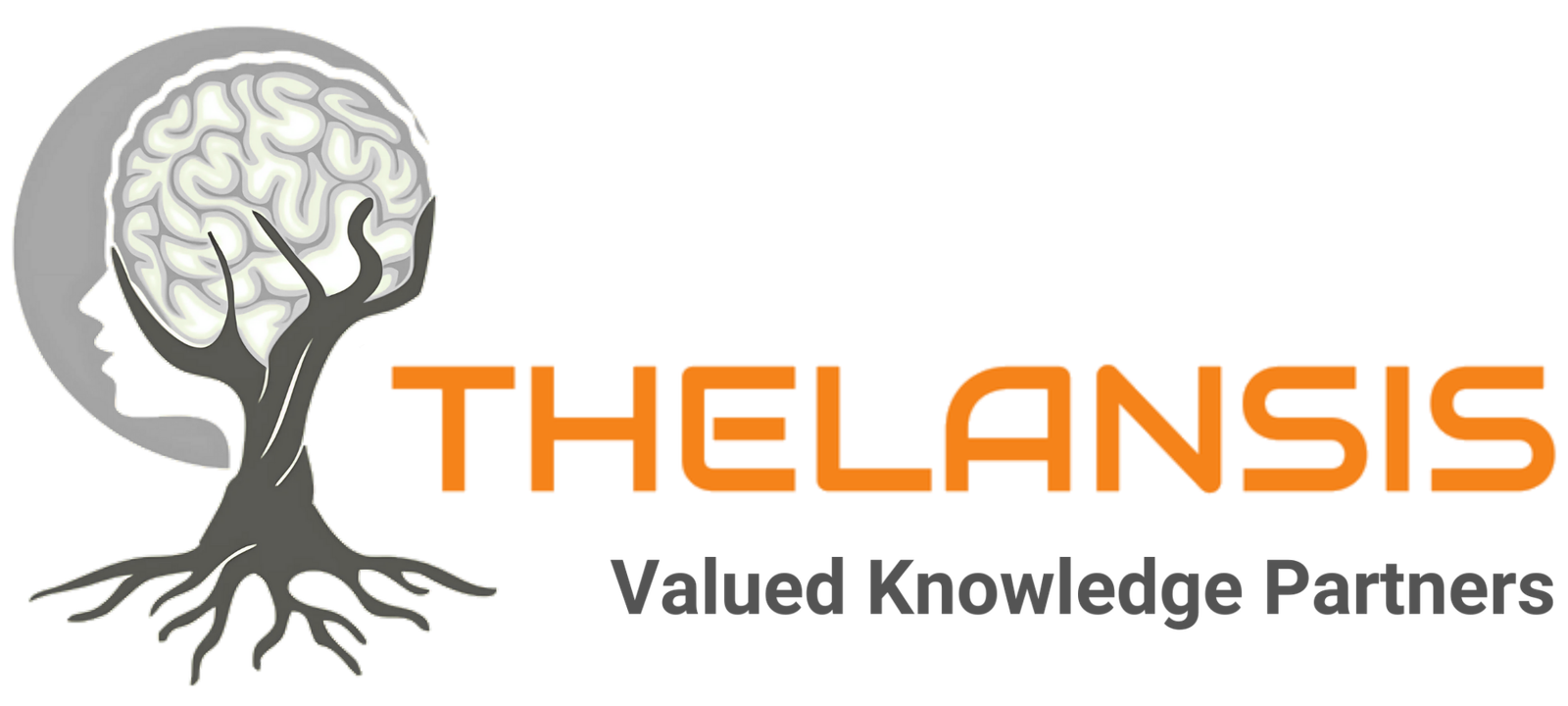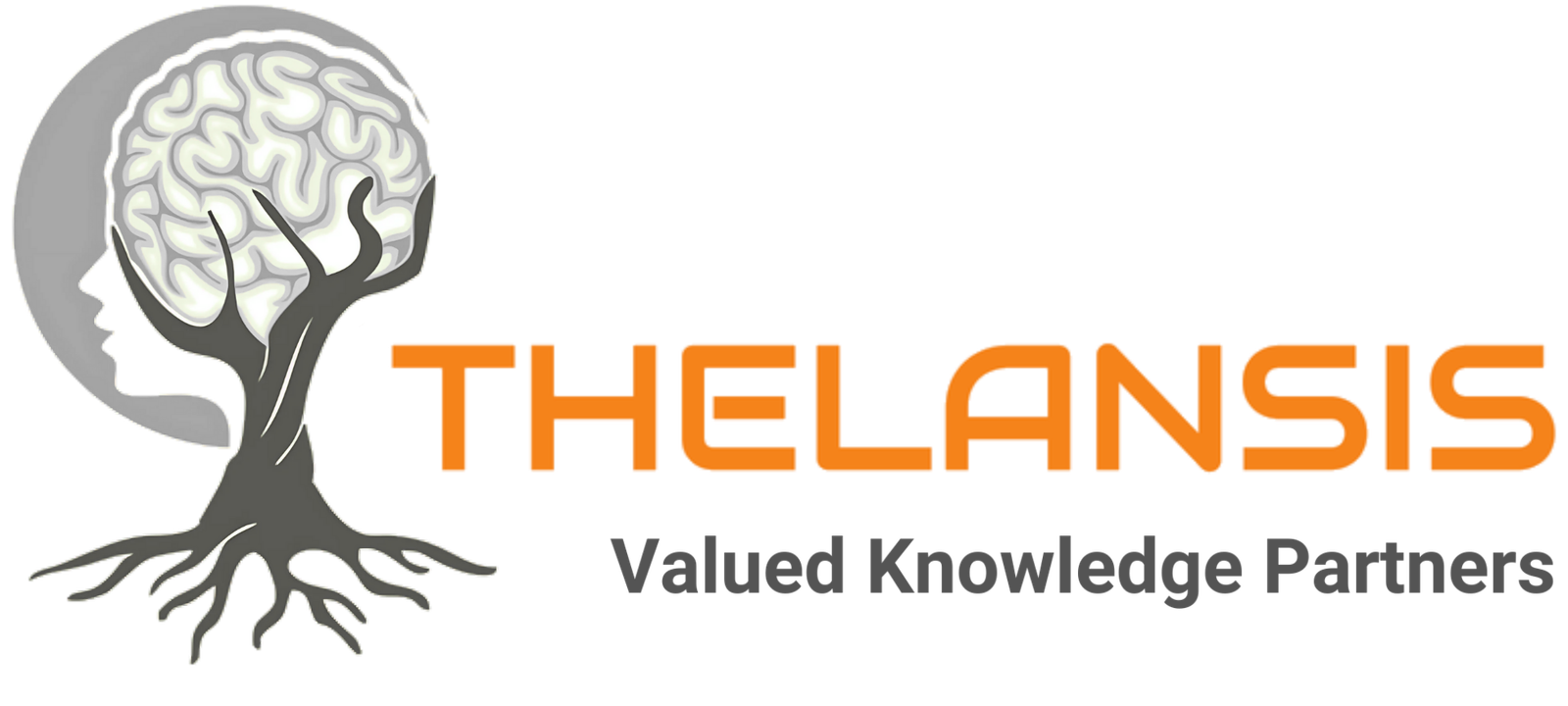Chiari Malformation – Market Outlook, Epidemiology, Competitive Landscape, and Market Forecast Report – 2021 To 2032
- Published Date : September 29, 2021
- Updated On : April 16, 2022
- Pages : 151
Chiari Malformation Market Outlook
Thelansis’s “Chiari Malformation Market Outlook, Epidemiology, Competitive Landscape, and Market Forecast Report – 2021 To 2032″ covers disease overview, epidemiology, drug utilization, prescription share analysis, competitive landscape, clinical practice, regulatory landscape, patient share, market uptake, market forecast, and key market insights under the potential Biliary Atresia (BA) treatment modalities options for eight major markets (USA, Germany, France, Italy, Spain, UK, Japan, and China).
Chiari Malformation Overview
Chiari malformations are a type of deformity of the posterior fossa and hindbrain that includes the cerebellum, pons, and medulla oblongata. These deformities cause problems ranging from cerebellar tonsillar herniation through the foramen magnum to cerebellar absence, with or without other associated intracranial or extracranial defects like hydrocephalus encephalocele, syrinx, or spinal dysraphism. Chiari malformation type 1 occurs during the growth of the skull and brain. As a result, symptoms, and signs may not manifest until late childhood or adulthood. Chiari malformation type 2 and type 3 are present at birth in children (congenital). The classic symptom of Chiari malformation is severe headaches. They usually occur due to sudden coughing, sneezing, or straining. Chiari malformation type 1 may also cause neck pain, unsteady gait, poor hand coordination, numbness, and dizziness. Chiari malformation can progress and cause severe complications such as hydrocephalus, spina bifida, syringomyelia, and tethered cord syndrome.
- The diagnosed prevalence of Chiari malformations ranges from 0.75 to 1.2 cases per 1000 populations in the USA.
Geography Covered:
North America- the United States and Canada
Europe- EU5 (Germany, France, Italy, Spain, and the United Kingdom)
Other countries- Japan & China
Study Period: 2021-2032
Current Clinical Practice and Treatment Algorithm
This section of the study covers country-specific current clinical practice, the standard of care, and significant limitations around addressing the unmet needs. Retrospective analysis and bench-marking of clinical study outcomes are presented in terms of Pre-treatment & post-treatment clinical and demographic patient characteristics. Essentially, this section will cover the evolution of the current competitive landscape and its impact on the future treatment paradigm.
KOL Insights:
KOLs across 8 MM markets from the center of Excellence/ Public/ Private hospitals participated in the study. Insights around current treatment landscape, epidemiology, clinical characteristics, future treatment paradigm, and Unmet needs
Market Forecast: Patient Based Forecast Model (MS. Excel Based Automated Dashboard)
– Data Inputs with sourcing
– Market Event and Product Event
– Country-specific Forecast Model
– Market uptake and patient share uptake
– Attribute Analysis
– Analog Analysis
– Disease burden and pricing scenario
– Summary and Insights
NPV/ IRR Calculator-
Optimization of cash flow/ revenue flow concerning all fixed and variable investments throughout the product development process. The rate of return on an investment is a critical indicator to ensure the profitability and break-even of the project.
Competitive Landscape:
The competitive landscape includes country-specific approved as well as pipeline therapies. Any asset/product-specific designation or review such as Orphan drug designation, Fast track, Priority Review, Breakthrough Therapy Designation, Rare Pediatric Disease Designation, and Accelerated Approval are tracked and supplemented with analyst commentary.
Clinical Trial Assessment-
Detailed clinical trial data analysis and critical product positioning include trial design, primary outcomes, secondary outcomes, dosing and schedules, inclusion and exclusion criteria, recruitment status and essentially covers the reported adverse events. Majorly the trial analysis helps determine the potential of the critical assets and their probable filing and launch date.
Unmet Medical Needs Overview-
This report presents the most important clinical unmet needs in the treatment, according to Thelansis research and analysis. Other essential unmet needs identified through our study include decreased cost burden on patients, improved administration convenience, and improved patient compliance.
Visit our social media pages:
Chiari Malformation Market Outlook
Thelansis’s “Chiari Malformation Market Outlook, Epidemiology, Competitive Landscape, and Market Forecast Report – 2021 To 2032″ covers disease overview, epidemiology, drug utilization, prescription share analysis, competitive landscape, clinical practice, regulatory landscape, patient share, market uptake, market forecast, and key market insights under the potential Biliary Atresia (BA) treatment modalities options for eight major markets (USA, Germany, France, Italy, Spain, UK, Japan, and China).
Chiari Malformation Overview
Chiari malformations are a type of deformity of the posterior fossa and hindbrain that includes the cerebellum, pons, and medulla oblongata. These deformities cause problems ranging from cerebellar tonsillar herniation through the foramen magnum to cerebellar absence, with or without other associated intracranial or extracranial defects like hydrocephalus encephalocele, syrinx, or spinal dysraphism. Chiari malformation type 1 occurs during the growth of the skull and brain. As a result, symptoms, and signs may not manifest until late childhood or adulthood. Chiari malformation type 2 and type 3 are present at birth in children (congenital). The classic symptom of Chiari malformation is severe headaches. They usually occur due to sudden coughing, sneezing, or straining. Chiari malformation type 1 may also cause neck pain, unsteady gait, poor hand coordination, numbness, and dizziness. Chiari malformation can progress and cause severe complications such as hydrocephalus, spina bifida, syringomyelia, and tethered cord syndrome.
- The diagnosed prevalence of Chiari malformations ranges from 0.75 to 1.2 cases per 1000 populations in the USA.
Geography Covered:
North America- the United States and Canada
Europe- EU5 (Germany, France, Italy, Spain, and the United Kingdom)
Other countries- Japan & China
Study Period: 2021-2032
Current Clinical Practice and Treatment Algorithm
This section of the study covers country-specific current clinical practice, the standard of care, and significant limitations around addressing the unmet needs. Retrospective analysis and bench-marking of clinical study outcomes are presented in terms of Pre-treatment & post-treatment clinical and demographic patient characteristics. Essentially, this section will cover the evolution of the current competitive landscape and its impact on the future treatment paradigm.
KOL Insights:
KOLs across 8 MM markets from the center of Excellence/ Public/ Private hospitals participated in the study. Insights around current treatment landscape, epidemiology, clinical characteristics, future treatment paradigm, and Unmet needs
Market Forecast: Patient Based Forecast Model (MS. Excel Based Automated Dashboard)
– Data Inputs with sourcing
– Market Event and Product Event
– Country-specific Forecast Model
– Market uptake and patient share uptake
– Attribute Analysis
– Analog Analysis
– Disease burden and pricing scenario
– Summary and Insights
NPV/ IRR Calculator-
Optimization of cash flow/ revenue flow concerning all fixed and variable investments throughout the product development process. The rate of return on an investment is a critical indicator to ensure the profitability and break-even of the project.
Competitive Landscape:
The competitive landscape includes country-specific approved as well as pipeline therapies. Any asset/product-specific designation or review such as Orphan drug designation, Fast track, Priority Review, Breakthrough Therapy Designation, Rare Pediatric Disease Designation, and Accelerated Approval are tracked and supplemented with analyst commentary.
Clinical Trial Assessment-
Detailed clinical trial data analysis and critical product positioning include trial design, primary outcomes, secondary outcomes, dosing and schedules, inclusion and exclusion criteria, recruitment status and essentially covers the reported adverse events. Majorly the trial analysis helps determine the potential of the critical assets and their probable filing and launch date.
Unmet Medical Needs Overview-
This report presents the most important clinical unmet needs in the treatment, according to Thelansis research and analysis. Other essential unmet needs identified through our study include decreased cost burden on patients, improved administration convenience, and improved patient compliance.
Visit our social media pages:
Chiari Malformation Competitive Landscape
will be updated soon
KOLs across 8 MM markets from the center of Excellence/ Public/ Private hospitals participated in the study. Insights around current treatment landscape, epidemiology, clinical characteristics, future treatment paradigm, and Unmet needs.
| COUNTRY | No. Of KOLs |
| USA | 17 |
| GERMANY | 4 |
| UK | 5 |
| SPAIN | 4 |
| FRANCE | 4 |
| ITALY | 4 |
| JAPAN | 5 |
| CHINA | 5 |
Chiari Malformation Market Forecast: Patient Based Forecast Model (MS. Excel Based Automated Dashboard)
Data Inputs with sourcing, Market Event, Product Event, Country specific Forecast Model, Market uptake and patient share uptake, Attribute Analysis, Analog Analysis, Disease burden, and pricing scenario, Summary, and Insights.

1. Chiari Malformation – Key Findings Summary |
| 1.1. Clinical findings |
| 1.1.1. Disease overview |
| 1.1.2. Therapeutic practices |
| 1.1.3. Future outlook |
| 1.2. Commercial findings |
| 1.2.1. Chiari Malformation market scenario 2021 |
| 1.2.2. Chiari Malformation market scenario 2025 |
| 1.2.3. Chiari Malformation market scenario 2032 |
2. Chiari Malformation Overview |
| 2.1. Disease Introduction |
| 2.2. Pathophysiology |
| 2.3. Signs and Symptoms |
| 2.4. Risk Factors |
| 2.5. Etiology |
| 2.6. Classification |
| 2.7. Pathogenesis |
| 2.8. Diagnosis |
| 2.9. Complications |
| 2.10. Treatment Algorithm |
| 2.10.1. Treatment in US (guidelines) |
| 2.10.2. Treatment in EU-5 (guidelines) |
| 2.10.3. Treatment in Japan (guidelines) |
| 2.10.4. Treatment in China (guidelines) |
| 2.11. Treatment Goals for Chiari Malformation |
| 2.12. Referral Patterns |
| 2.12.1. Referral Scenario in US |
| 2.12.2. Referral Scenario in EU-5 |
| 2.12.3. Referral Scenario in Japan |
| 2.12.4. Referral Scenario in China |
| 2.13. Chiari Malformation Prognosis |
| 2.14. Healthcare burden |
| 2.14.1. Healthcare burden in US |
| 2.14.2. Healthcare burden in EU-5 |
| 2.14.3. Healthcare burden in Japan |
| 2.14.4. Healthcare burden in China |
| 2.15. Unmet Needs in Chiari Malformation management |
| 2.16. Market Opportunity for Chiari Malformation |
| 2.17. KOL Comments on current and upcoming/expected treatment practices in Chiari Malformation |
3. Epidemiology |
| 3.1. Epidemiology Overview |
| 3.2. Epidemiology by Geography |
| 3.2.1. Chiari Malformation Epidemiology in US (2021-2032) |
| 3.2.1.1. Incidence of Chiari Malformation |
| 3.2.1.2. Diagnosed cases |
| 3.2.1.3. Treatable Patient Pool |
| 3.2.1.4. Epidemiology Trends |
| 3.2.2. Chiari Malformation Epidemiology in EU-5 (2021-2032) |
| 3.2.2.1. Incidence of Chiari Malformation |
| 3.2.2.2. Diagnosed cases |
| 3.2.2.3. Treatable Patient Pool |
| 3.2.2.4. Epidemiology Trends |
| 3.2.3. Chiari Malformation Epidemiology in Japan (2021-2032) |
| 3.2.3.1. Incidence of Chiari Malformation |
| 3.2.3.2. Diagnosed cases |
| 3.2.3.3. Treatable Patient Pool |
| 3.2.3.4. Epidemiology Trends |
| 3.2.4. Chiari Malformation Epidemiology in China (2021-2032) |
| 3.2.4.1. Incidence of Chiari Malformation |
| 3.2.4.2. Diagnosed cases |
| 3.2.4.3. Treatable Patient Pool |
| 3.2.4.4. Epidemiology Trends |
| 3.3. Epidemiology Trends (World-wide) |
4. Market Outlook |
| 4.1. US Chiari Malformation Market Forecast 2021-2032 |
| 4.1.1. Market Progression (Futuristic) |
| 4.1.2. Market Trends and Expectations |
| 4.1.2.1. Worst case scenario |
| 4.1.2.2. Base Case Scenario |
| 4.1.2.3. Best Case Scenario |
| 4.1.3. Drivers and Barriers |
| 4.2. UK Chiari Malformation Market Forecast 2021-2032 |
| 4.2.1. Market Progression (Futuristic) |
| 4.2.2. Market Trends and Expectations |
| 4.2.2.1. Worst case scenario |
| 4.2.2.2. Base Case Scenario |
| 4.2.2.3. Best Case Scenario |
| 4.2.3. Drivers and Barriers |
| 4.3. France Chiari Malformation Market Forecast 2021-2032 |
| 4.3.1. Market Progression (Futuristic) |
| 4.3.2. Market Trends and Expectations |
| 4.3.2.1. Worst case scenario |
| 4.3.2.2. Base Case Scenario |
| 4.3.2.3. Best Case Scenario |
| 4.3.3. Drivers and Barriers |
| 4.4. Germany Chiari Malformation Market Forecast 2021-2032 |
| 4.4.1. Market Progression (Futuristic) |
| 4.4.2. Market Trends and Expectations |
| 4.4.2.1. Worst case scenario |
| 4.4.2.2. Base Case Scenario |
| 4.4.2.3. Best Case Scenario |
| 4.4.3. Drivers and Barriers |
| 4.5. Italy Chiari Malformation Market Forecast 2021-2032 |
| 4.5.1. Market Progression (Futuristic) |
| 4.5.2. Market Trends and Expectations |
| 4.5.2.1. Worst case scenario |
| 4.5.2.2. Base Case Scenario |
| 4.5.2.3. Best Case Scenario |
| 4.5.3. Drivers and Barriers |
| 4.6. Spain Chiari Malformation Market Forecast 2021-2032 |
| 4.6.1. Market Progression (Futuristic) |
| 4.6.2. Market Trends and Expectations |
| 4.6.2.1. Worst case scenario |
| 4.6.2.2. Base Case Scenario |
| 4.6.2.3. Best Case Scenario |
| 4.6.3. Drivers and Barriers |
| 4.7. Japan Chiari Malformation Market Forecast 2021-2032 |
| 4.7.1. Market Progression (Futuristic) |
| 4.7.2. Market Trends and Expectations |
| 4.7.2.1. Worst case scenario |
| 4.7.2.2. Base Case Scenario |
| 4.7.2.3. Best Case Scenario |
| 4.7.3. Drivers and Barriers |
| 4.8. China Chiari Malformation Market Forecast 2021-2032 |
| 4.8.1. Market Progression (Futuristic) |
| 4.8.2. Market Trends and Expectations |
| 4.8.2.1. Worst case scenario |
| 4.8.2.2. Base Case Scenario |
| 4.8.2.3. Best Case Scenario |
| 4.8.3. Drivers and Barriers |
| 4.9. Key Expected Milestones (world-wide) Impacting the Market |
5. Competitive Landscape |
| 5.1. Pipeline Therapies Overview |
| 5.1.1. Phase III Therapies |
| 5.1.1.1. Current Status |
| 5.1.1.2. Trial details, results |
| 5.1.1.3. Approval Timeline |
| 5.1.1.4. Likelihood of approval |
| 5.1.1.5. Expected Product Positioning |
| 5.1.1.2. All other Phase III Therapies ….. |
| 5.1.1.3. Attribute Analysis of Phase III molecules |
| 5.1.2. Phase II and Phase I/II Therapies |
| 5.1.2.1. Current Status |
| 5.1.2.2. Trial details, results |
| 5.1.2.3. Approval Timelines |
| 5.1.3. List of active Pre-clinical Therapies |
| 5.1.3.1. Status in Chiari Malformation |
| 5.1.3.2. Company positioning |
| 5.1.3.2. All other pre-clinical therapies |
| 5.1.4. List of Inactive/discontinued assets |
| 5.1.4.1. Business impact of discontinuations on current pipeline |
| 5.1.5. Potential winners from Chiari Malformation Pipeline |
| 5.1.5.1. Potential Blockbusters across the pipeline |
6. Regulatory/Approval Scenario |
| 6.1. Regulatory/Approval Framework in US |
| 6.1.1. Policy Framework |
| 6.1.2. Payer Expectations |
| 6.2. Regulatory/Approval Framework in UK |
| 6.2.1. Policy Framework |
| 6.2.2. Payer Expectations |
| 6.3. Regulatory/Approval Framework in France |
| 6.3.1. Policy Framework |
| 6.3.2. Payer Expectations |
| 6.4. Regulatory/Approval Framework in Germany |
| 6.4.1. Policy Framework |
| 6.4.2. Payer Expectations |
| 6.5. Regulatory/Approval Framework in Italy |
| 6.5.1. Policy Framework |
| 6.5.2. Payer Expectations |
| 6.6. Regulatory/Approval Framework in Spain |
| 6.6.1. Policy Framework |
| 6.6.2. Payer Expectations |
| 6.7. Regulatory/Approval Framework in Japan |
| 6.7.1. Policy Framework |
| 6.7.2. Payer Expectations |
| 6.8. Regulatory/Approval Framework in China |
| 6.8.1. Policy Framework |
| 6.8.2. Payer Expectations |
7. Clinical Trial Assessment – Current and Future Paradigm |
| 7.1. Distribution of Primary Endpoints across trials |
| 7.2. Distribution of Secondary Endpoints across trials |
| 7.3. Evolution and acceptance of surrogate endpoints |
| 7.4. Key Investigator initiated trials |
| 7.5. Attrition analysis |
| 7.5.1. Suspended/Discontinued Assets |
| 7.5.2. Failed Trials, Reasons and Business Impact |
| 7.5.3. Terminated Trials, Reasons and Business Impact |
| 7.5.4. Withdrawn Trials, Reasons and Business Impact |
| 7.6. Trial enrollment scenario and challenges |
| 7.7. Clinical Trial Guidance (across geographies) |
8. Thelansis Commentary |
| 8.1. Key Unmet needs in Chiari Malformation |
| 8.2. Possible Best-case Clinical Trial Strategies |
| 8.3. Possible Best Case Targeted Product Profile (TPP) |
| 8.4. Possible Best-case Market positioning strategies |
| 8.5. Possible Best-case Market Access Strategies |
| 8.6. Possible Best-case LCM Strategies |
| 8.7. Overall View on Chiari Malformation Market in Dollar Value |
9. Report Methodology |
| 9.1. Secondary research |
| 9.2. Primary research |
| 9.3. Data collation |
| 9.4. Insight Generation |
10. About Thelansis |
| 10.1. Our Capabilities |
| 10.2. Our Services |
| 10.3. Our Contacts |
| 10.4. Disclaimer |
Table of contents (TOC)
1. Chiari Malformation – Key Findings Summary |
| 1.1. Clinical findings |
| 1.1.1. Disease overview |
| 1.1.2. Therapeutic practices |
| 1.1.3. Future outlook |
| 1.2. Commercial findings |
| 1.2.1. Chiari Malformation market scenario 2021 |
| 1.2.2. Chiari Malformation market scenario 2025 |
| 1.2.3. Chiari Malformation market scenario 2032 |
2. Chiari Malformation Overview |
| 2.1. Disease Introduction |
| 2.2. Pathophysiology |
| 2.3. Signs and Symptoms |
| 2.4. Risk Factors |
| 2.5. Etiology |
| 2.6. Classification |
| 2.7. Pathogenesis |
| 2.8. Diagnosis |
| 2.9. Complications |
| 2.10. Treatment Algorithm |
| 2.10.1. Treatment in US (guidelines) |
| 2.10.2. Treatment in EU-5 (guidelines) |
| 2.10.3. Treatment in Japan (guidelines) |
| 2.10.4. Treatment in China (guidelines) |
| 2.11. Treatment Goals for Chiari Malformation |
| 2.12. Referral Patterns |
| 2.12.1. Referral Scenario in US |
| 2.12.2. Referral Scenario in EU-5 |
| 2.12.3. Referral Scenario in Japan |
| 2.12.4. Referral Scenario in China |
| 2.13. Chiari Malformation Prognosis |
| 2.14. Healthcare burden |
| 2.14.1. Healthcare burden in US |
| 2.14.2. Healthcare burden in EU-5 |
| 2.14.3. Healthcare burden in Japan |
| 2.14.4. Healthcare burden in China |
| 2.15. Unmet Needs in Chiari Malformation management |
| 2.16. Market Opportunity for Chiari Malformation |
| 2.17. KOL Comments on current and upcoming/expected treatment practices in Chiari Malformation |
3. Epidemiology |
| 3.1. Epidemiology Overview |
| 3.2. Epidemiology by Geography |
| 3.2.1. Chiari Malformation Epidemiology in US (2021-2032) |
| 3.2.1.1. Incidence of Chiari Malformation |
| 3.2.1.2. Diagnosed cases |
| 3.2.1.3. Treatable Patient Pool |
| 3.2.1.4. Epidemiology Trends |
| 3.2.2. Chiari Malformation Epidemiology in EU-5 (2021-2032) |
| 3.2.2.1. Incidence of Chiari Malformation |
| 3.2.2.2. Diagnosed cases |
| 3.2.2.3. Treatable Patient Pool |
| 3.2.2.4. Epidemiology Trends |
| 3.2.3. Chiari Malformation Epidemiology in Japan (2021-2032) |
| 3.2.3.1. Incidence of Chiari Malformation |
| 3.2.3.2. Diagnosed cases |
| 3.2.3.3. Treatable Patient Pool |
| 3.2.3.4. Epidemiology Trends |
| 3.2.4. Chiari Malformation Epidemiology in China (2021-2032) |
| 3.2.4.1. Incidence of Chiari Malformation |
| 3.2.4.2. Diagnosed cases |
| 3.2.4.3. Treatable Patient Pool |
| 3.2.4.4. Epidemiology Trends |
| 3.3. Epidemiology Trends (World-wide) |
4. Market Outlook |
| 4.1. US Chiari Malformation Market Forecast 2021-2032 |
| 4.1.1. Market Progression (Futuristic) |
| 4.1.2. Market Trends and Expectations |
| 4.1.2.1. Worst case scenario |
| 4.1.2.2. Base Case Scenario |
| 4.1.2.3. Best Case Scenario |
| 4.1.3. Drivers and Barriers |
| 4.2. UK Chiari Malformation Market Forecast 2021-2032 |
| 4.2.1. Market Progression (Futuristic) |
| 4.2.2. Market Trends and Expectations |
| 4.2.2.1. Worst case scenario |
| 4.2.2.2. Base Case Scenario |
| 4.2.2.3. Best Case Scenario |
| 4.2.3. Drivers and Barriers |
| 4.3. France Chiari Malformation Market Forecast 2021-2032 |
| 4.3.1. Market Progression (Futuristic) |
| 4.3.2. Market Trends and Expectations |
| 4.3.2.1. Worst case scenario |
| 4.3.2.2. Base Case Scenario |
| 4.3.2.3. Best Case Scenario |
| 4.3.3. Drivers and Barriers |
| 4.4. Germany Chiari Malformation Market Forecast 2021-2032 |
| 4.4.1. Market Progression (Futuristic) |
| 4.4.2. Market Trends and Expectations |
| 4.4.2.1. Worst case scenario |
| 4.4.2.2. Base Case Scenario |
| 4.4.2.3. Best Case Scenario |
| 4.4.3. Drivers and Barriers |
| 4.5. Italy Chiari Malformation Market Forecast 2021-2032 |
| 4.5.1. Market Progression (Futuristic) |
| 4.5.2. Market Trends and Expectations |
| 4.5.2.1. Worst case scenario |
| 4.5.2.2. Base Case Scenario |
| 4.5.2.3. Best Case Scenario |
| 4.5.3. Drivers and Barriers |
| 4.6. Spain Chiari Malformation Market Forecast 2021-2032 |
| 4.6.1. Market Progression (Futuristic) |
| 4.6.2. Market Trends and Expectations |
| 4.6.2.1. Worst case scenario |
| 4.6.2.2. Base Case Scenario |
| 4.6.2.3. Best Case Scenario |
| 4.6.3. Drivers and Barriers |
| 4.7. Japan Chiari Malformation Market Forecast 2021-2032 |
| 4.7.1. Market Progression (Futuristic) |
| 4.7.2. Market Trends and Expectations |
| 4.7.2.1. Worst case scenario |
| 4.7.2.2. Base Case Scenario |
| 4.7.2.3. Best Case Scenario |
| 4.7.3. Drivers and Barriers |
| 4.8. China Chiari Malformation Market Forecast 2021-2032 |
| 4.8.1. Market Progression (Futuristic) |
| 4.8.2. Market Trends and Expectations |
| 4.8.2.1. Worst case scenario |
| 4.8.2.2. Base Case Scenario |
| 4.8.2.3. Best Case Scenario |
| 4.8.3. Drivers and Barriers |
| 4.9. Key Expected Milestones (world-wide) Impacting the Market |
5. Competitive Landscape |
| 5.1. Pipeline Therapies Overview |
| 5.1.1. Phase III Therapies |
| 5.1.1.1. Current Status |
| 5.1.1.2. Trial details, results |
| 5.1.1.3. Approval Timeline |
| 5.1.1.4. Likelihood of approval |
| 5.1.1.5. Expected Product Positioning |
| 5.1.1.2. All other Phase III Therapies ….. |
| 5.1.1.3. Attribute Analysis of Phase III molecules |
| 5.1.2. Phase II and Phase I/II Therapies |
| 5.1.2.1. Current Status |
| 5.1.2.2. Trial details, results |
| 5.1.2.3. Approval Timelines |
| 5.1.3. List of active Pre-clinical Therapies |
| 5.1.3.1. Status in Chiari Malformation |
| 5.1.3.2. Company positioning |
| 5.1.3.2. All other pre-clinical therapies |
| 5.1.4. List of Inactive/discontinued assets |
| 5.1.4.1. Business impact of discontinuations on current pipeline |
| 5.1.5. Potential winners from Chiari Malformation Pipeline |
| 5.1.5.1. Potential Blockbusters across the pipeline |
6. Regulatory/Approval Scenario |
| 6.1. Regulatory/Approval Framework in US |
| 6.1.1. Policy Framework |
| 6.1.2. Payer Expectations |
| 6.2. Regulatory/Approval Framework in UK |
| 6.2.1. Policy Framework |
| 6.2.2. Payer Expectations |
| 6.3. Regulatory/Approval Framework in France |
| 6.3.1. Policy Framework |
| 6.3.2. Payer Expectations |
| 6.4. Regulatory/Approval Framework in Germany |
| 6.4.1. Policy Framework |
| 6.4.2. Payer Expectations |
| 6.5. Regulatory/Approval Framework in Italy |
| 6.5.1. Policy Framework |
| 6.5.2. Payer Expectations |
| 6.6. Regulatory/Approval Framework in Spain |
| 6.6.1. Policy Framework |
| 6.6.2. Payer Expectations |
| 6.7. Regulatory/Approval Framework in Japan |
| 6.7.1. Policy Framework |
| 6.7.2. Payer Expectations |
| 6.8. Regulatory/Approval Framework in China |
| 6.8.1. Policy Framework |
| 6.8.2. Payer Expectations |
7. Clinical Trial Assessment – Current and Future Paradigm |
| 7.1. Distribution of Primary Endpoints across trials |
| 7.2. Distribution of Secondary Endpoints across trials |
| 7.3. Evolution and acceptance of surrogate endpoints |
| 7.4. Key Investigator initiated trials |
| 7.5. Attrition analysis |
| 7.5.1. Suspended/Discontinued Assets |
| 7.5.2. Failed Trials, Reasons and Business Impact |
| 7.5.3. Terminated Trials, Reasons and Business Impact |
| 7.5.4. Withdrawn Trials, Reasons and Business Impact |
| 7.6. Trial enrollment scenario and challenges |
| 7.7. Clinical Trial Guidance (across geographies) |
8. Thelansis Commentary |
| 8.1. Key Unmet needs in Chiari Malformation |
| 8.2. Possible Best-case Clinical Trial Strategies |
| 8.3. Possible Best Case Targeted Product Profile (TPP) |
| 8.4. Possible Best-case Market positioning strategies |
| 8.5. Possible Best-case Market Access Strategies |
| 8.6. Possible Best-case LCM Strategies |
| 8.7. Overall View on Chiari Malformation Market in Dollar Value |
9. Report Methodology |
| 9.1. Secondary research |
| 9.2. Primary research |
| 9.3. Data collation |
| 9.4. Insight Generation |
10. About Thelansis |
| 10.1. Our Capabilities |
| 10.2. Our Services |
| 10.3. Our Contacts |
| 10.4. Disclaimer |




